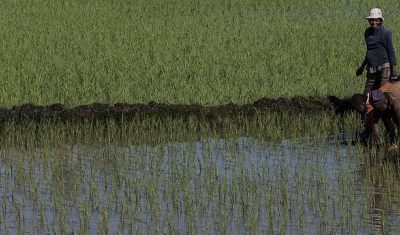Meet our Researchers: Christophe Golay


Olivier Chamard/Geneva Academy
28 January 2020
Dr Christophe Golay is Senior Research Fellow and Strategic Adviser on Economic, Social and Cultural Rights (ESCR) at the Geneva Academy. He works on various research projects dealing with ESCR and the rights of peasants and is also involved in teaching. He is one of the three short-listed candidates for the position of United Nations (UN) Special Rapporteur on the right to food.
Tell us about you: What’s your background?
I hold a PhD in International Relations (with a specialization in International Law) and two Masters – in International Law and International Relations – from the Graduate Institute of International and Development Studies.
From 2001 to 2008 I was Legal Adviser to the first UN Special Rapporteur on the right to food and undertook missions with the UN in Brazil, Guatemala, Bolivia, Cuba, Niger, Ethiopia, Bangladesh, India and the Occupied Palestinian Territory. In that capacity, I participated in the definition of the right to food in international law and published two books, including my PhD dissertation, on the right to food and access to justice.
Since 2008, I visited several other countries, including Laos, Cambodia, Ghana, Kenya, Haiti, Nepal, Tunisia, and Congo-Brazzaville, to support the work of those who fight against hunger, food insecurity and malnutrition, and I published two other books, as well as several journal articles and Geneva Academy publications.
In 2013, I was Visiting Fellow at the McGill Centre for Human Rights and Legal Pluralism where I worked on the human rights impact of land grabbing and taught in an interdisciplinary course on economic justice.
Why did you choose to work in the field of human rights?
I started my studies at the Graduate Institute to work for the International Committee of the Red Cross. But at the end of my Master in international law, I started to work with the UN Special Rapporteur on the right to food and decided to focus on the right to food for my PhD dissertation. It was in 2001, and since then I never stopped working on the right to food and related topics.
What are the Research Projects you’re currently working on?
I am supervising the legal dimension of two research projects on the right to food, one in Bolivia and Kenya and the other one in Cambodia and Ghana, jointly funded by the Swiss National Science Foundation and the Swiss Agency for Development and Cooperation.
I am also involved in two other research projects, on the promotion of a human rights-based approach to the achievement of the Sustainable Development Goals (SDGs), and on the protection of the rights of peasants. After having provided academic support to the negotiation of the UN Declaration on the rights of peasants and other people working in rural areas (UNDROP) for ten years, I focus now on its implementation.
I am also coordinating two training courses linked to my research, one on ESCR and the SDGs.
Why are these projects important?
Human rights and the SDGs are mutually reinforcing. This is particularly true for ESCR, including the right to food. ESCR can offer a legal basis and guidance in the implementation of SDGs, and the SDGs can increase support for the realization of ESCR. As the accountability framework linked to the SDGs is extremely weak, we support the role of UN human rights mechanisms in monitoring the SDGs that seek to realize ESCR. By engaging in this monitoring, UN human rights mechanisms can fill part of the accountability gap of the SDGs.
The research project on the right of peasants is key as 80 percent of the world’s hungry and extremely poor lives in rural areas. By supporting the implementation of the UNDROP – adopted by the UN General Assembly in 2018 – we participate in both the protection of the rights of peasants and the achievement of the SDGs.
What will be their impact?
We have a real opportunity to contribute to the realization of the SDGs, and to a better protection of the rights of peasants. The diversity and strength of our partners – UN human rights mechanisms, states, international organizations, non-governmental organizations (NGOs) and social movements – give us hope that this can be useful.
In India, a right to food campaign led by NGOs, to push Indian States to implement decisions of the Supreme Court in the right to food case, has helped hundreds of millions of children to have better access to food. If by using the same tool – human rights – we can achieve even a tiny portion of that success that would be fantastic.
According to you, what are the key challenges today in human rights?
We need to propose meaningful responses/solutions to systematic denial and violations of human rights and international humanitarian law in many parts of the world.
I am convinced that it is because we are too far from the end of World War II, that we have forgotten where it leads when we discriminate people because they are born in other countries, or because they are ‘different’. What we need are more PANTHERS everywhere – participation, accountability, transparency, human dignity, empowerment, rule of law, and solidarity.
On a more personal note: What do you enjoy doing in your spare time?
I enjoy life with my family and friends. I also like to swim in the lake or the Rhône and to play tennis or table tennis. I love good food and a nice movie.








